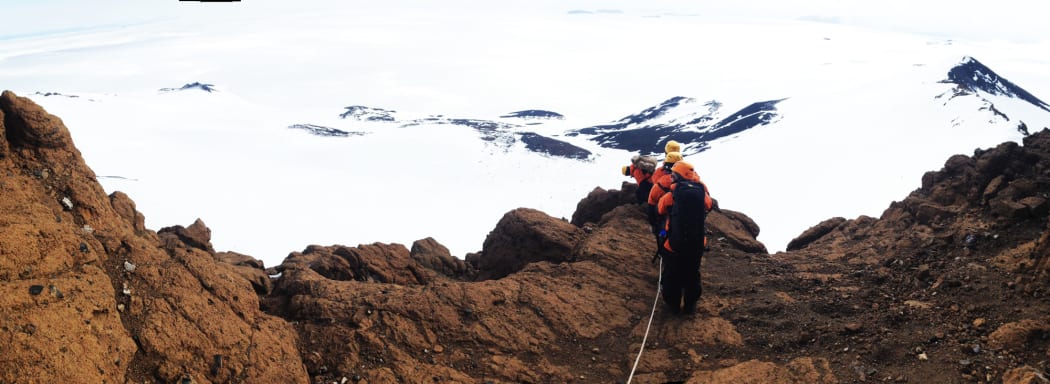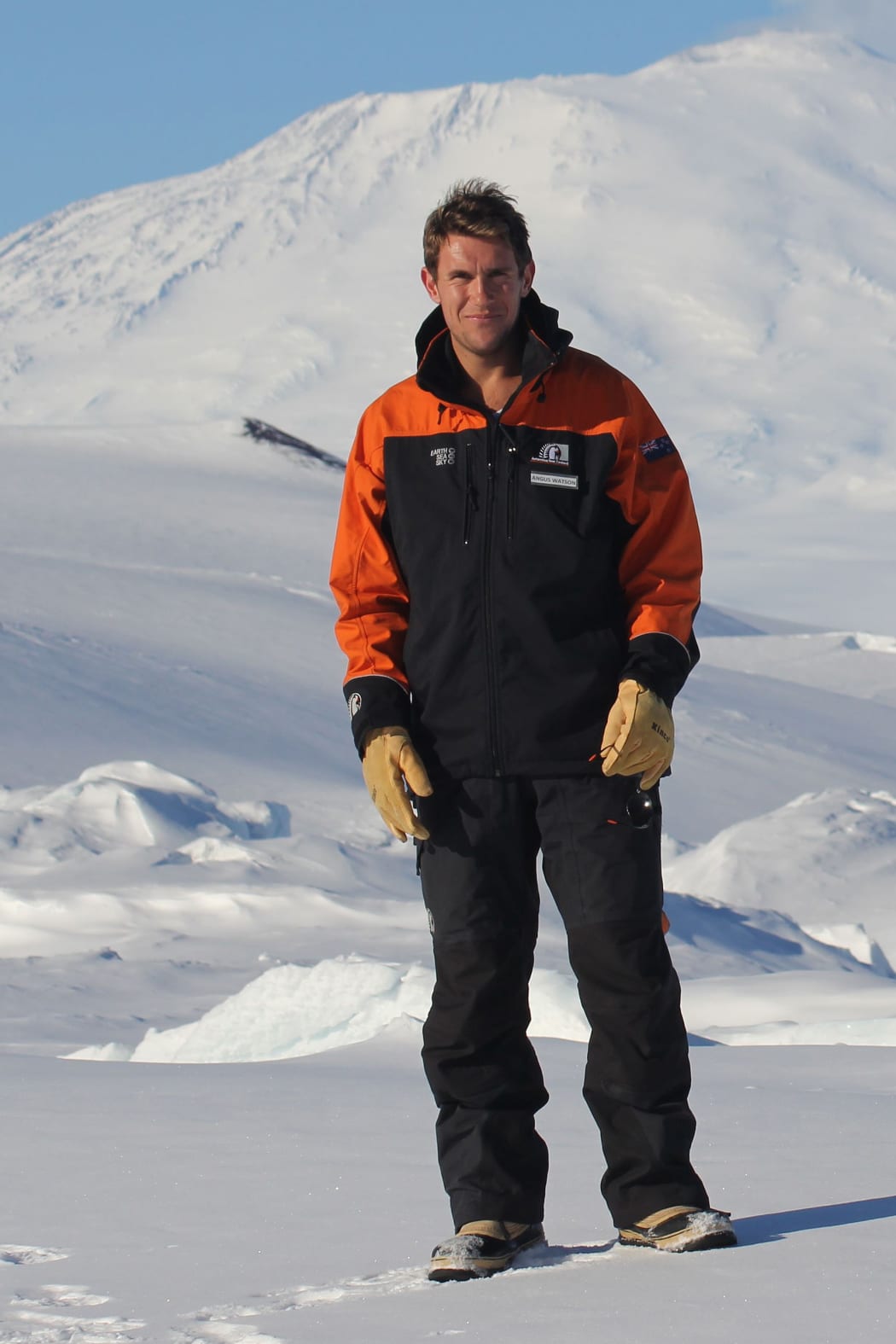Angus Watson didn't know what to expect from seven weeks in the frozen Antarctic.

Traversing the frozen landscape. Photo: Supplied
As far back as Angus Watson can remember, he dreamt of exploring the world. But as a boy he never dreamt that at 23 years old he would have already been to the most remote continent on Earth – Antarctica.
“I’ve done a lot of traveling in the past, but this one’s really different. I mean you are going down to an uninhabitable place that hasn’t been colonised and is so unique in every way. Yeah, I didn’t know what to expect.”
As the winner of the Sir Peter Blake Antarctic Youth Ambassador Scholarship for Engineering, this summer Angus spent seven weeks at Scott Base assisting with environmental and restorative work.
“Blindingly beautiful,” was his first impression of the frozen landscape.
“It’s not just the sheer size of the Transantarctic Mountains that blew me away, but how bright the endless snow was.”
Angus says the 24-hour daylight was a challenge because it was so easy to stay up through the night. “You could easily go for a walk at 2am in the morning and it would be pretty similar temperatures to what it would be during the day and it was just as light.”

Angus Watson in Antarctica. Photo: Supplied
Part of his duties was repairing wanigans - portable accommodation on sleds which are used when undertaking long distance science trips across Antarctica.
But, for Angus, the greatest thing about the trip was fulfilling his love of adventure and the great outdoors.
“One day the field trainers, or the guides, they lowered us down a crevasse ... [It was] probably 2 metres wide and 40m deep and they are very, very dangerous … If you fall in one, you’re stuck, you’re dead … It was a very humbling experience.”
He says following in the footsteps of the early Antarctic explorers, including visits to Scott's and Shackleton's huts, was a surreal experience.
“With the programme that’s set up there now we have so much gear… Whereas you look at the Shackleton’s crews and all they had was oilskins and there’s just no comparison at all. They were very tough because the environment’s harsh, very harsh.”
Angus had his own experience of how unforgiving the Antarctic environment can be. It has an average winter temperature of -49°C and even in summer it usually isn’t warmer than -5°C.
“One day I went out ski skating on the ice and then decided to run home afterwards. I had skated out with a tail wind and when I returned it was a headwind.”
Angus didn’t expect the cold to be so severe and was only wearing thermal underwear and a windshell. About half-an-hour into his run it started to get “very, very cold” on his face.
“I remember putting my shorts over my head to keep my cheeks from freezing up, and just running with my long johns on.”
Just as well he had Scott Base for shelter.
“It’s amazing you can be inside where it’s so nice. And then look outside and it’s freezing or a blizzard.
“Apparently in the winter storms, the whole base, which is up on legs, will shake in the wind and that’s the only time you can really notice the weather outside.”
Angus says he loves the rush of being on an adventure. “I think you get a rush when you’re off the beaten track and you’re seeing things and you realise that not many people have seen these things in the past.”
As well as traveling to Antarctica and around New Zealand, he’s also spent six months in South America where he did conservation work in the jungles of Peru and climbed the Andes.
I was climbing up this face and I couldn’t get down. I’ve actually got a video to my parents saying I might not make it.
There in the mountains, Angus had another experience that he thought might have been the end of him. He found himself “very lost, basically in the middle of nowhere”.
“I was climbing up this face and I couldn’t get down. I’ve actually got a video to my parents saying I might not make it.”
Having arrived back in New Zealand earlier this month, Angus says his Antarctic experience now seems surreal as he adjusts back to normal life.
But the environment has left a lasting impression on him. “You see how much ice [there is] and how epically big this place is and how we are impacting it.”
“There is a lot of science going on and a lot of passionate people out there … I was proud to see what New Zealand is doing down there.”

